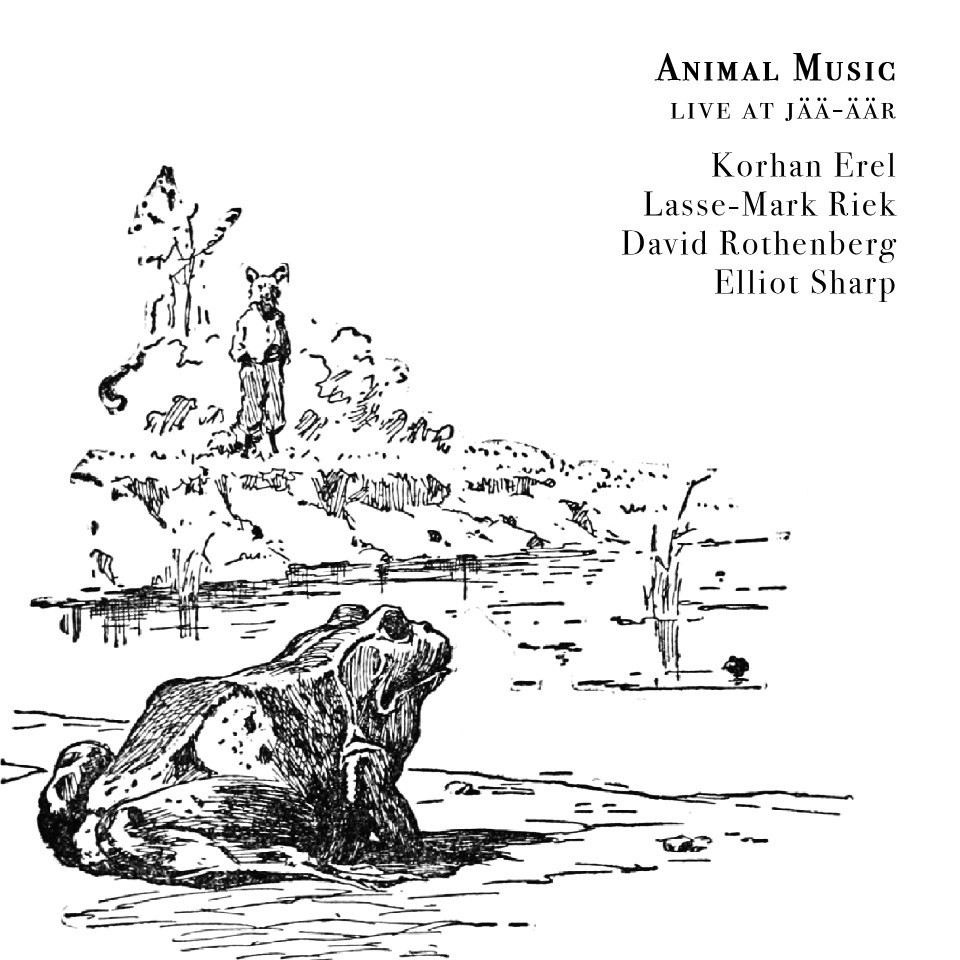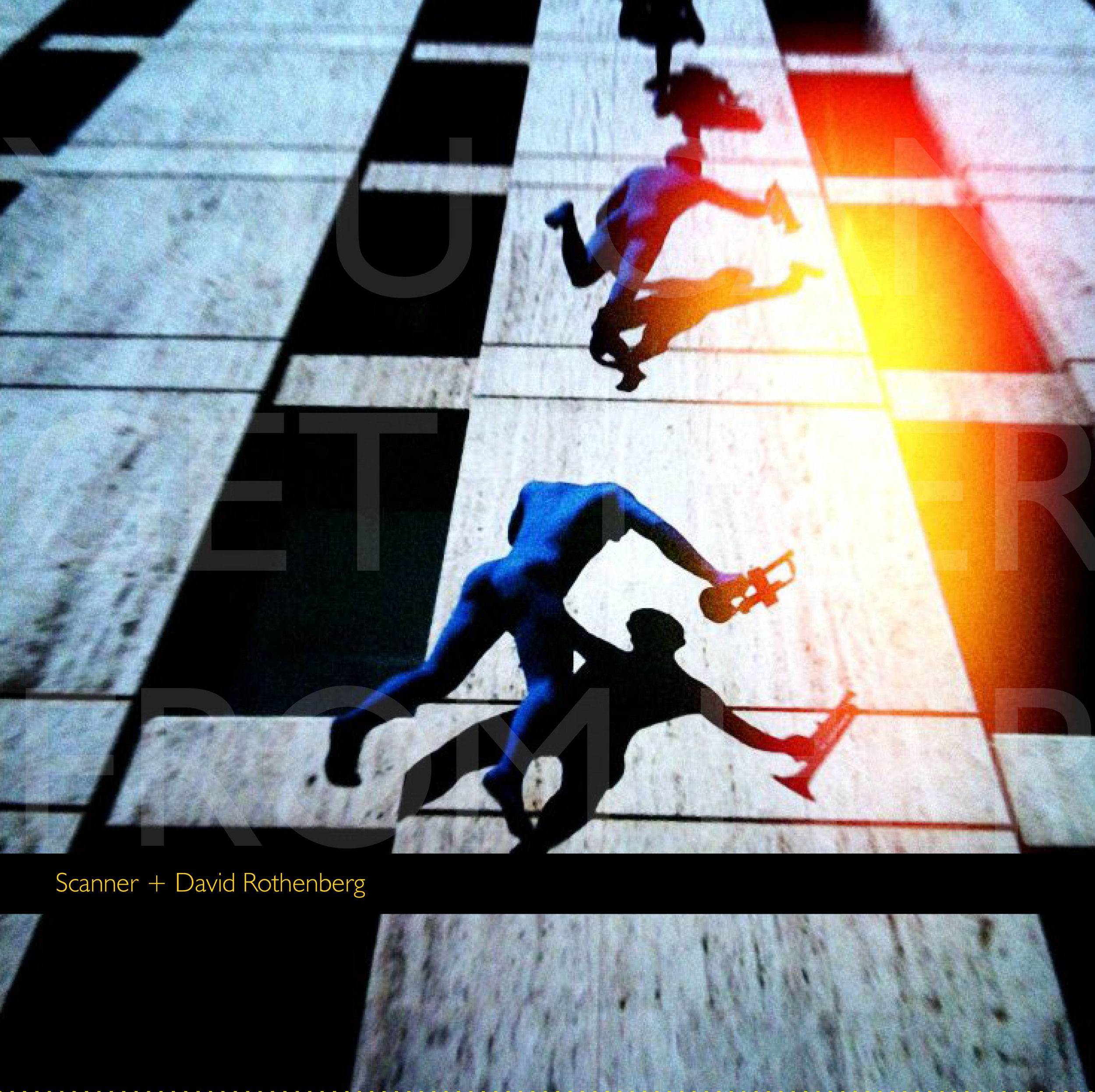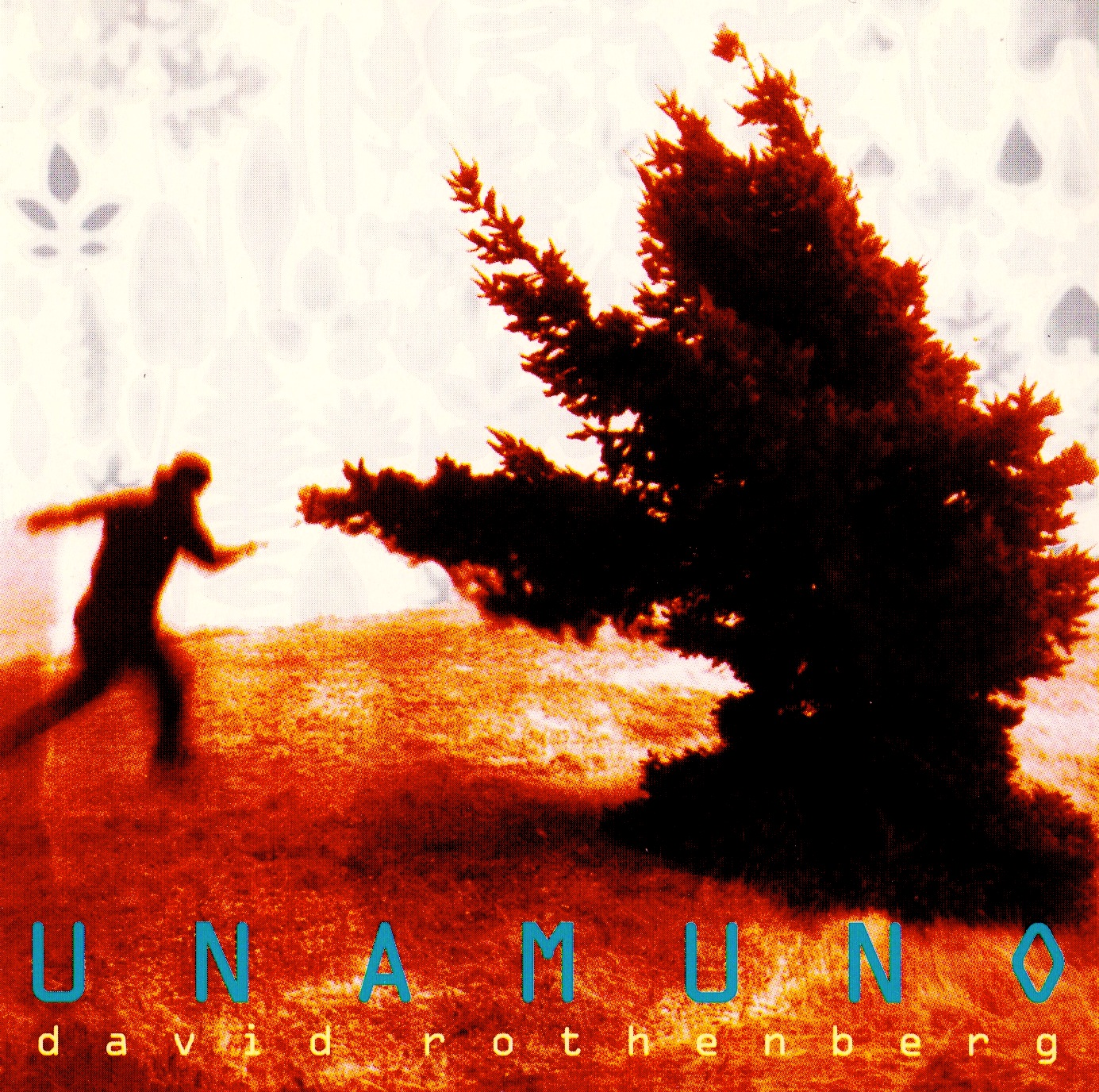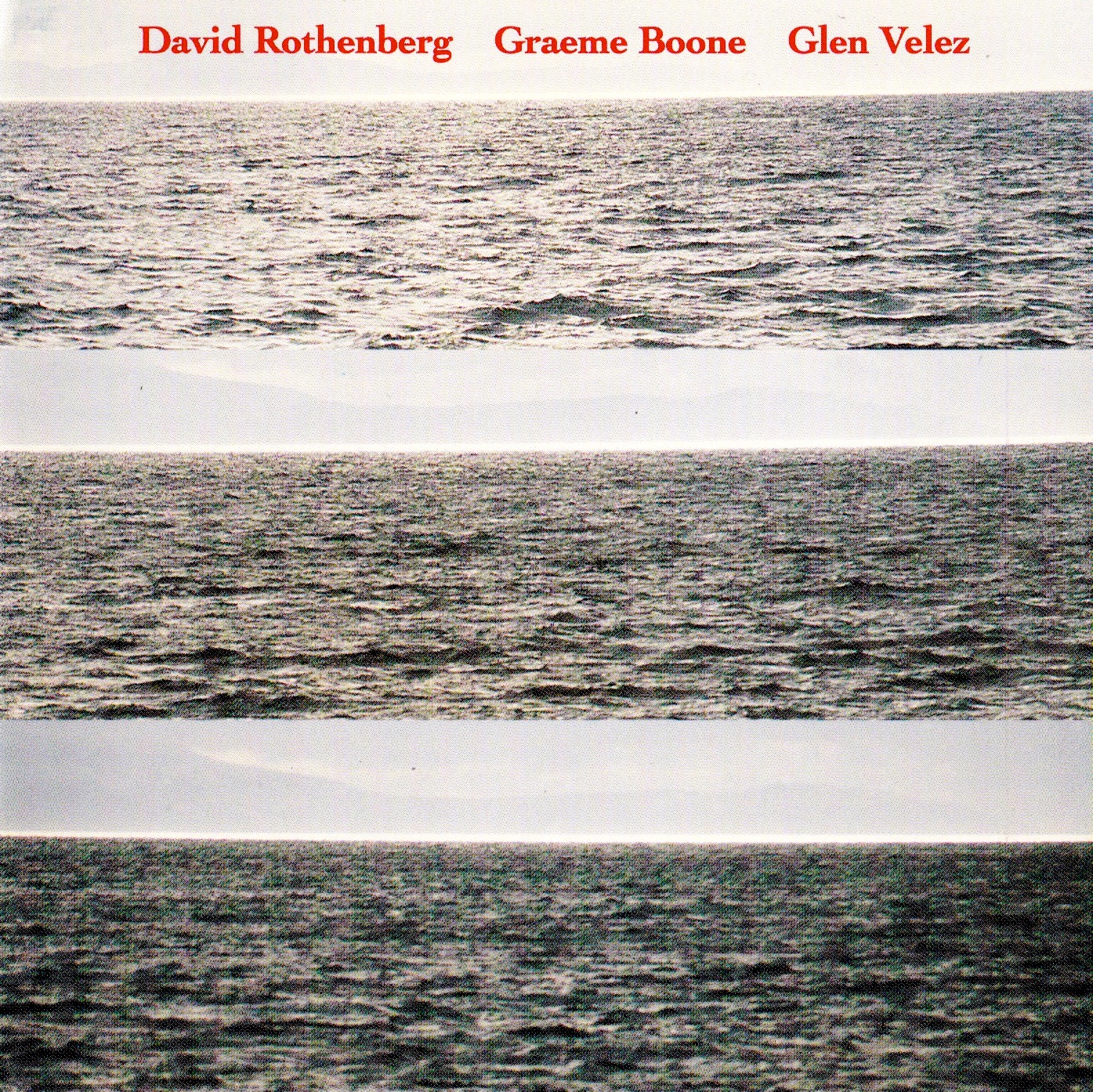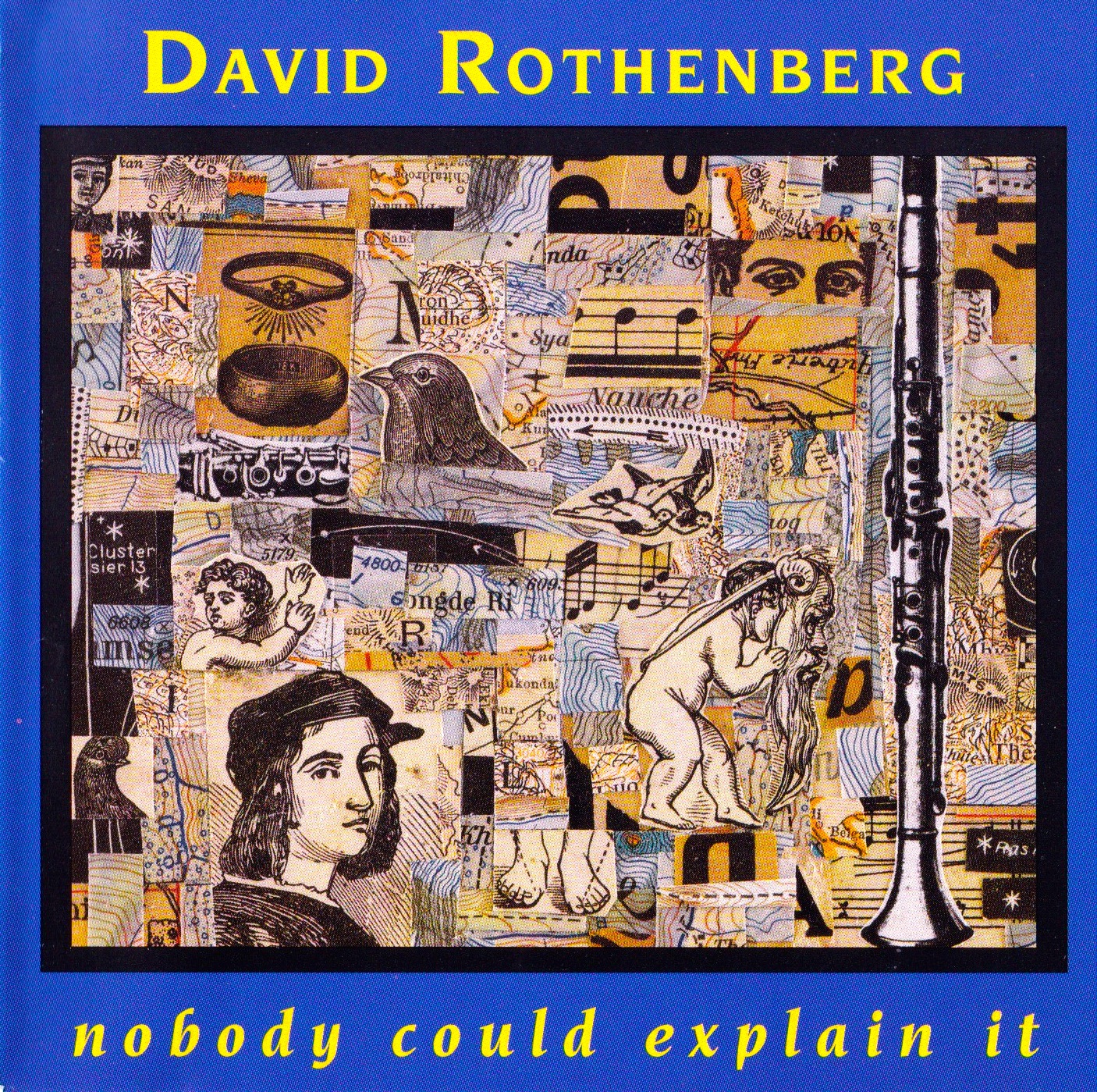In the Wake of Memories
Wassim Mukdad, David Rothenberg, Volker Lankow: First meeting at David Rothenberg's "Nightingales in Berlin" project, these three musicians recorded this oud, clarinet and percussion fusion at Studio Wong in that city. A meditation on survival and resilience, on empathy and love, each musician interweaves phrases and nuanced expressions of pain, joy, expectation and relief.
They Say Humans Exist
Sidiki Camara, David Rothenberg, Jacob Young: On one long day in the wooded hills outside Oslo at Øystein Sevåg’s Blueberry Field Studios, we improvised the music you now hear. Far away on other planets the aliens just might be listening, tuning into the sounds of a distant place called Earth; the blending of sounds North and South, known and unknown. They say humans exist, but no one can be sure. Until they detect our music. Then they know.
Named Best Jazz Album of 2020 by Stereo+ Magazine!
Explode All Forms
With new books just published, Elliott Sharp's IrRational Music and David Rothenberg's Nightingales In Berlin, this duo embarked on a European tour combining readings from their respective volumes with improvisational concerts. This evening at Berlin's Exploratorium caught them in fine form and was recorded. The music ranges from delicate sonic explorations to abstract noise, free melodic extrapolations to interactions with the sounds of nightingale samples played from a laptop.
Grenseland
«Grenseland» is the result of a spontaneous studio session in Nevessa studios in Saugerties, New York, August 26th 2016. Gunhild Seim, who released the recording on her Norwegian label, says "This record is, for me, an experiment that turned into a miracle. When you least expect it, something great can happen. I went to Woodstock August 2016 to visit my good friend Marilyn Crispell. Marilyn introduced me to several friends, including David Rothenberg, and we invited him to join us in the studio. This day in this place was an oasis for me, and I think for all of us. The music felt kind of magic in the moment, and still does every time I listen to it.”
Bird Saw Buchla
Rothenberg/Hein/Tammen create a meeting point of different aesthetic languages, processes of thought and approaches to sound. On Bird Saw Buchla these three voices come together to form a trialogue within a field of differential forces, which brings forth creative confusions and aesthetic dissent as well as mutual agreement upon discursive sonic objects. The music wanders in between driving rhythmical structures, flowing layers, melodic elements and a myriad of other musical topographies.
Cool Spring
In October 2015 David and Bernhard performed in the Hudson Valley of New York, where they were joined in the studio by bass player and producer Jay Nicholas in the village where David and Jay live, definitely a Cool Spring. Using a compositional approach akin to his work as a visual artist, Bernhard usually begins by improvising abstract sonic structures which are subsequently developed into an increasingly detailed aural picture. Jay Nicholas, bass player extraordinaire and legendary studio engineer, has worked at Chung King Studios with the likes of David Bowie, Wyclef Jean, the Neville Brothers and the Wu-Tang Clan.
Adaptations
One afternoon in May 2015 David Rothenberg arrived by bicycle with his clarinet to the basement studio of Bernhard Wöstheinrich in Kreuzberg. He descended the spiral staircase and the microphone was already set up. Bernhard had loaded up samples of nightingales and other birds, just the kinds of sounds he knew David would like, combined with those signature Wöstheinrich pads and strangely sequenced rhythms. All that remained was for Markus Reuter to assess and dwell upon the result, remixing it into its present otherworldly polished form. We are all subject to the process of adaptation, finding our place in the border between humanity and the beyond.
Animal Music Live at Jää äär
Can animal sounds be considered music? These two gigs see David Rothenberg's jazz-tinged clarinet lines, Elliott Sharp's eclectic guitar patterns and Korhan Erel's perplexing transformations interact with field recordings of animals. Instead of simply running these animal sounds as a backing tape, Lasse-Marc Riek is playing them like an instrument within the context of the group – opening up a dialogue between these two worlds.
One Dark Night I Left My Silent House (ECM 2089)
Ever-adventurous pianist Marilyn Crispell in quietly exploratory improvised duets with clarinetist David Rothenberg (in his ECM debut). Rothenberg studied with Jimmy Giuffre and Joe Maneri, amongst others, is active as player-composer and also well known as an author and naturalist. The titles here reflect also on the natural world. Tracks include “The Hawk and the Mouse”, “Owl Moon” and “Still Life with Woodpeckers”.
You Can’t Get There From Here (monotype 038)
You Can’t Get There From Here is the collaborative effort of electronic musician/producer Scanner and jazz musician/philosopher David Rothenberg. Scanner, who has worked with musicians like Radiohead and Laurie Anderson, constructs the songs with complex layers of found-sounds, environmental samples, deep bass-heavy beats, and mesmerizing percussion loops. Rothenberg’s jazzy clarinet improvisations move between lyrical Middle Eastern-tinged motifs, pensive blues lines, and atonal fluttering. The result is a set of songs that straddles ambient music, free jazz, and experimental electronic music.
Bangalore Wild (WILD Foundation 9901)
At the 6th World Wilderness Congress in Bangalore in October, 1998, a cross-cultural musical collaboration was arranged, between clarinetist David Rothenberg, also an environmentalist and writer, and the internationally celebrated Karnataka College of Percussion, under the direction of master drummer T.A.S. Mani and featuring his wife, R.A. Ramamani, on vocals. The group has had much experience performing world music fusions in Europe, with the German group Dissidenten and the American expat saxophonist, Charlie Mariano. They have previously recorded on the ECM and Intuition labels. The CD includes a sixteen-page booklet with a detailed essay on the unique story behind the recording, and how music can make a difference in the environmental crisis.
Before the War (Earthear)
Douglas Quin has traveled the world collecting these exotic sounds, which he learned how to perform live with David Rothenberg, bassist Bill Douglass, and drummer Russ Gold. Voices and soundscapes heard in the music were derived from field recordings made in Alaska, Madagascar, Costa Rica, Kenya and Brazil. Recording creatures and habitats is not as easy as you might think. You have to know how to point the machines, how to listen as much as look, how to decide what it is exactly you want to capture. If this music is any kind of jazz it would be what Evan Eisenberg wants to call ‘earth jazz,’ an image that might have environmental as well as musical consequences. In The Ecology of Eden he writes: "Respond as flexibly to nature as nature responds to you. Accept nature’s freedom as the premise of your own: accept that both are grounded in a deeper necessity. Relax your rigid beat and learn to follow nature’s rhythms-in other words, to swing."
Unamuno (Felmay 7006)
There are machines in the garden. And they cant stop moving. One second the call of a rainforest bird, another the driving beat of a Moroccan bendir, and then the dripping sound of the Antarctic icecap melting, a danceable groove or a wash of electronic swells. This is improvisation not over chord changes, but sound changes, a new kind of jazz that is built around the powerful soundscapes of a living Earth. Rhythms arise from walruses thwacking their teeth against the rocks, and the ominous dripping noise of the Antarctic ice caps melting. Rothenberg’s clarinet soars through and around this audio slide show, searching for some way to save the Earth for music, for art, for civilization. Its named in honor of Miguel de Unamuno, the Spanish existentialist writer who could be called a prophet of improvisation and surprise.
On the Cliffs of the Heart (Newtone 6744)
Named as one of the best releases of the year 1995 by Jazziz magazine, this trio presents renditions of dervish music, Dufay, and even the Stanley Brothers’ “Man of Constant Sorrow,” performed by David Rothenberg, Graeme Boone, and Glen Velez.
Nobody Could Explain It (Accurate 4002)
Composer/philosopher Rothenberg sets clarinet and woodflute against synthesizer and synth drum sounds. The machines are played by hand, not by an electronic pulse, giving the music a distinctly non-synthetic feel. Includes Tibetan wind pieces from the Nyingmapa and Gelugpa Buddhist traditions, folk songs from Scandinavia, Hasidic chants, works inspired by texts from Eskimo shamans and the I Ching, transformed by an exuberant playing style.
World Wild Noize
As David Rothenberg first told his son Umru of the wonders of Ableton Live and began preparing him to enter the world of bizarre electronic music, through jamming in the studio and live on stage, this set of recordings emerged. Recorded live, for the most part, in their Cold Spring living room, with young Umru triggering loops and putting them through endless layers of effects while David's clarinets, saxophones, and synthesizers layer into the mix as well. What resulted was a glitchy, funky, and ridiculous sea of unending rhythms, tones, and grooves to keep one dancing—or at least mildly amused—for a full hour of high quality listening enjoyment. Hear where it all started, long before Umru became the producer he is today.









































